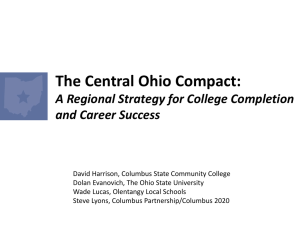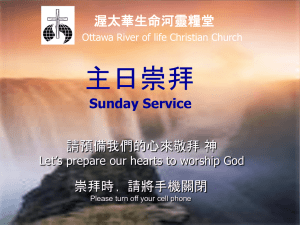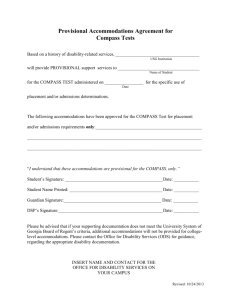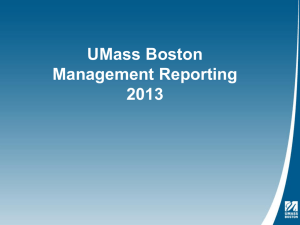Student Services Overview - Summit School of Ahwatukee
advertisement
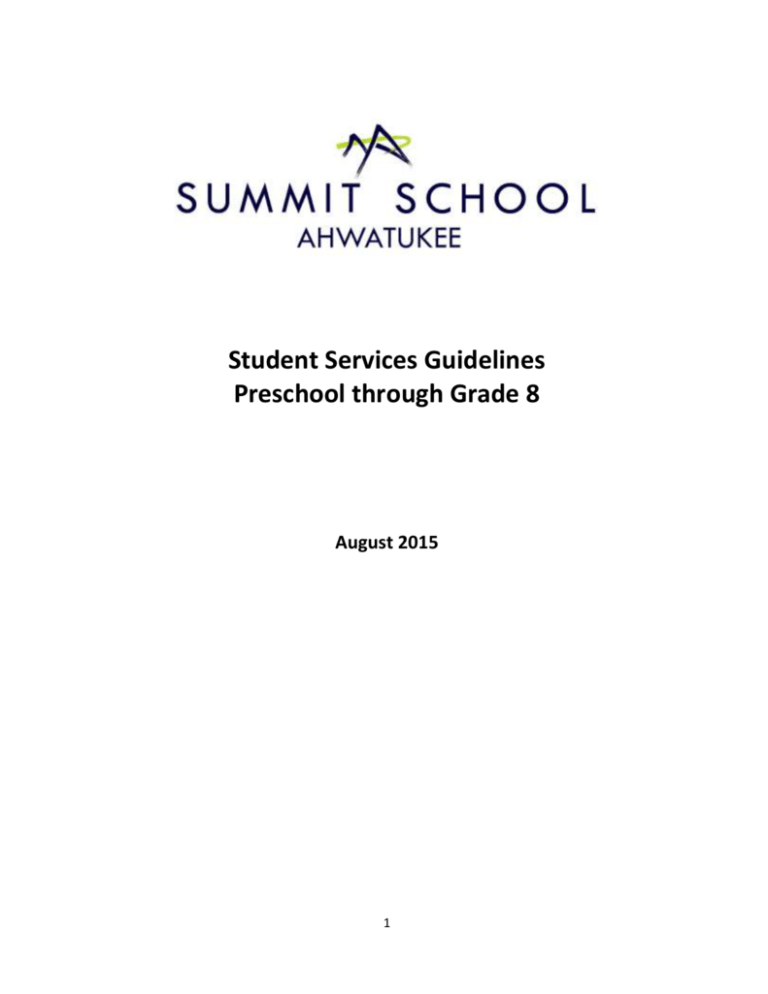
Student Services Guidelines Preschool through Grade 8 August 2015 1 Contents 1. Summit Mission Statement 2. Purpose of Student Services Guidelines 3. Summit Admissions Guidelines for Students with Special Needs and Learning Differences 4. Limits to Services Provided by the School or On Campus 5. Screening, Intervention, and Referral 6. Instructional/Curriculum Practices for Students with Special Needs a. Assessment b. Differentiation of Instruction c. Accommodations i. Definition of accommodations ii. Standardized testing accommodations 7. Health Practices for Students with Special Medical Needs a. Medical Alert Plan 8. Documentation of Special Needs 9. Records Management 10. Referral to Outside Agency a. Kyrene School District 11. Special Needs Services Provided on Campus a. Speech Language b. Services or Tutoring by Private Contractors 12. Appendices: A. Student Study Team (SST) Referral Form including Action Plan and Minutes 2 SUMMIT SCHOOL OF AHWATUKEE MISSION STATEMENT The mission of Summit School of Ahwatukee is to foster academic excellence and the love of learning through a liberal arts education. Our community nurtures the knowledge, skills, and values essential to a responsible and rewarding life. PURPOSE OF STUDENT SERVICES GUIDELINES Our goal is to support the academic, social and emotional development of all students at Summit School of Ahwatukee. The purpose of these guidelines is to describe the procedures used to support the unique needs of students with learning or behavior differences. We believe that successful support for students with special needs is best accomplished in a collaborative and supportive environment with a full understanding of the limits of resources available to parents, teachers and students. SUMMIT ADMISSIONS GUIDELINES FOR STUDENTS WITH SPECIAL NEEDS Summit accepts students with special needs whose needs can be met with differentiated instruction within the mainstream classroom. Admissions decisions are based on a careful assessment of each student’s ability to achieve success within the limits of our resources. Parents need to consult with the Summit Admissions office to determine that Summit has appropriate resources to serve the student. For admissions purposes, Summit considers the applicant’s strengths and weaknesses, and reviews documentation in the following areas: Current academic functioning as determined by past school records (3 full years of complete school records are required to apply for grades three and above). Applicants must have average to above average grades. Assessed intellectual levels. Assessed achievement levels. Oral and written communication skills. Statement of health history including significant health needs and vision and hearing screening. Any additional services currently being provided such as those stated in an Individual Educational Program or 504 Accommodation Plan. Copies of professional assessments, previous IEPs, 504 plans, or any other accommodation plans must be submitted with the admissions application. If the applicant’s intellectual and achievement levels have not been assessed prior to applying for admission, parents will make arrangements for private testing after a formal application has been made. Applicants will visit for two days in a Summit classroom, in their current grade level. Students currently in kindergarten and above will be given a reading, writing and math assessments during their classroom visit. The Head of School will convene a meeting to review all of the admissions and assessment data and make a recommendation. Enrollment will be confirmed after the Director of Admissions has determined that the applicant can be successful at Summit within the limits of our resources. 3 Admission of students with special needs to a grade level may not ensure continued enrollment in the next grade level. It is increasingly difficult for Summit to meet the individual educational needs of students with special needs as they progress through the grade levels due to the increased level of academic rigor and requirements at progressive grade levels. Summit has an inclusive program for students with special needs but does not offer special education programming or personnel; modified grades, or make significant modifications to curriculum. Summit does not offer any related services such as dedicated special education assistants, transportation, or ancillary programs. Summit is unable to: Accept students with limited intellectual capacity, or who are emotionally, behaviorally or multiply handicapped. Accept students with learning disabilities or special needs who have limited English proficiency. Provide support services such as speech-language, physical, occupational therapy, home-schooling. Provide transition classes or self-contained special education classes. Provide home-schooling services. Administer formal psycho-educational assessments. Offer modified grades. Offer alternative diplomas. LIMITS TO SERVICES PROVIDED BY THE SCHOOL Summit does not offer special education programming or personnel for students with significant disabilities or medical impairments. Summit is not able to offer modified grades, or make significant modifications to curriculum. Summit does not offer any related services such as a school nurse, dedicated special education teachers or assistants, transportation, or ancillary programs. SCREENING, INTERVENTION AND REFERRAL The principle means of screening students who may need support is the Student Study Team (SST). This team is comprised of the classroom teacher, grade level team members, Counselor, and when appropriate, the Literacy Coordinator, special area teachers, speech/ language therapist, and others on an ad hoc basis. The purpose of this team is to support the referring teacher in meeting the needs of the student. The team meets at the direction of the Head of School. Referral Process: A referral may be initiated by any school personnel for any learner that is experiencing some form of academic, social or behavioral difficulty. All referrals are to be in written form and dated. All data regarding the child's academic and behavioral progress are collected and reported on the SST form prior to the meeting. Parents are notified of this meeting and the reasons for the referral prior to the meeting. The initial SST Referral Form may be obtained from the Counselor or Head of School. Upon completion of the form it should be returned to the Counselor and a meeting will be scheduled by the Counselor. Student Study Team Operating Procedures: All information regarding children should remain absolutely confidential. The venue for SST will be in the Counselor’s office. 4 Notes from each SST meeting will be recorded on the referral form. All SST records are highly confidential and to be kept in the Counselor or Head of School’s office. An action plan will be generated. Action plans typically, but not always, are characterized by one of the following: o No further action taken if the information shared and discussion by the team adequately addresses the concerns. o Interventions for support at school and home are developed. o If it is determined that additional assessment is necessary a meeting between the parents, teacher and counselor needs to be conducted. o Further meetings for monitoring the action plan and/or modifying the action plan are scheduled. Referring teacher contacts parent to report the results of the SST meeting. DOCUMENTATION OF SPECIAL NEEDS All discussions of students with special needs begin with a review of documentation of formal assessment and diagnosis that identifies the student’s special needs. Since Summit does not have special education programs or personnel the responsibility for obtaining and disclosing assessment information resides with the parents. INSTRUCTION/CURRICULUM PRACTICES FOR STUDENTS WITH SPECIAL NEEDS Assessment: All students are informally assessed at the beginning of the year. The results of these assessments are shared with parents and used in the development of a Personalized Education Plan. Differentiation of Instruction: One of the models commonly used by Summit teachers for adapting instruction to meet the needs of all students is “differentiation.” Classroom teachers facilitate the use of many differentiation strategies which make adjustments to the content, process or product according to the individual learner’s readiness and interests. This strategy is particularly effective for students with special needs. Accommodations: Definition of accommodations: Accommodations are changes to instruction that provide a student with a learning difference access to participate in a course/standard/test, which do not fundamentally alter or lower the standard or expectations of the course/standard/test. Accommodations typically are suggestions found in the psycho-educational report and reviewed by the Student Study Team in terms of their viability for successful use by the teacher in the course of daily instruction. Standardized Testing Accommodations: Students with documented disabilities may be eligible for special accommodations on standardized tests. Examples of some of the most common accommodations include extended time, having the test administered individually or with a small group in a distraction free environment, or having test items read aloud. For a student to be eligible for accommodations on standardized tests, the 5 student must meet two criteria: I) the student must have a documented disability and 2) the Student Study Team must have determined that there is a functional limitation as a result of the disability that necessitates the accommodation. Students are not typically granted accommodations on standardized tests if they are not receiving accommodations in the regular school setting. Eligibility for accommodations within the school setting, and on school administered standardized tests, is determined by the Student Study Team (SST). HEALTH PRACTICES FOR STUDENTS WITH SPECIAL MEDICAL NEEDS Students who have severe allergies or serious medical conditions require a doctor’s statement describing the health or medical condition and the most important steps to take in an emergency situation. This documentation must be presented to the Head of School and will be used to develop a medical alert plan which includes the following: picture of the student and all parent contact information; statement of the medical condition; signs and symptoms; information regarding when to contact emergency medical services; information regarding what to do/not to do until emergency medical services arrive; and any other information that would help school personnel keep the child safe. In cases where all staff needs to be informed, parents will be asked to give permission for a medical alert poster to be placed in public areas on campus. RECORDS MANAGEMENT AND CONFIDENTIALITY: RECORDS MANAGEMENT Two types of official records will be kept on a student receiving special service support: A Cumulative file and a Confidential file. In addition, a Working file may be kept by each teacher or staff member involved with the student. Cumulative Files A cumulative file is maintained on all students at Summit School of Ahwatukee, regardless of whether they receive support. Confidential Files Confidential files are maintained on students receiving support and any student that has confidential materials in their record. The intent of maintaining a confidential file is three-fold. First, keeping all related documents together in a single file keeps them organized and enhances accessibility. This is especially true with older students that have accumulated substantial documentation. Second, maintaining a confidential file and limiting access to those with a "need-to-know", and to persons equipped to appropriately interpret specialized information that may be contained in confidential documents, protects the privacy and dignity of the student and their family. Finally, maintaining the confidentiality of records that are private, sensitive, and specialized is within the ethical guidelines that apply to all educational institutions. 6 A "confidential file" will be created when confidential materials are maintained as part of a student's record at Summit School of Ahwatukee. Examples of confidential materials include the following: Evaluation Reports including: Psychological/Psycho-educational, Psychiatric, Speech/Language, and Social/Family Assessments. a. Records from outpatient/inpatient treatment (includes notes from communication, summaries or treatment plans from counselors, psychologists, psychiatrists, etc.). b. Student Study Team notes that are generated while a student is receiving any support such as tutoring, counseling or other accommodations. c. d. Permission to release/exchange information with outside providers. REFERRAL TO OUTSIDE AGENCY: Kyrene Special Education Services Available to Summit Students By virtue of attending a private school within Kyrene School District 28 attendance zone a student is eligible for a consultation with Exceptional Student Services personnel. A consult includes the following steps: 1. Parent’s contact Kyrene’s Assistant Director for Exceptional Student Services to request an evaluation if the parent or teacher suspects the child has a disability. 2. The first level is a Review of Existing Data (RED) where a school psychologist and special education teacher and any other appropriate staff would meet with the parent and the teacher to review all assessment data and observations. This meeting could also include any outside tutors or therapist. The team would identify any additional assessment data needed. 3. If Kyrene decides that additional assessment data is needed they will provide these assessments. These assessments may include cognitive assessment and current achievement data across all academic areas. 4. The results of these assessments will be used to determine eligibility for special education services and, if the child is found eligible for special education, to develop an Individualized Educational Plan. 5. If the student is found eligible the parents are offered IEP services in Kyrene. The child must be enrolled and attending a Kyrene school to receive IEP services. 6. If parents decline IEP services in Kyrene in order to continue attending a private school, they are offered a service agreement plan which includes up to one hour a week of services by a special education teacher in the local school. SPECIAL NEEDS SERVICES PROVIDED ON CAMPUS: The need for any services, including tutoring, provided on campus will be documented by a formal assessments such as speech language or psychoeducational assessment. Any private tutoring provided by non-school personnel, on the Summit campus must be approved by the Head of School. 7 Appendix A: Student Study Team Referral Form Student’s Name: DOB: Gender: Age: Ethnicity: Parents: Grade: Primary Language: Phone: Address: Name of person referring: Date: 1. WHAT IS THE PRIMARY PROBLEM/CONCERN/REASON FOR MEETING? 2. ANY BASELINE OR ASSESSMENT DATA: AIMS MAP Running Records Writing Assessment 3. STRENGTHS OF THIS STUDENT? Math Unit Tests Report Card Spelling Other: 4. ATTEMPTS, INCLUDING INTERVENTIONS (IN OR OUTSIDE OF SCHOOL) AND TEACHER/PARENT INVOLVEMENT, THAT HAVE BEEN MADE TO RESOLVE THE PROBLEM AND/OR CONCERN and RESULTS: NOTES FROM THE SST MEETING: Date of meeting: Persons in attendance: Recorder’s name: Protocol: The referring teacher gives an overview of the issue and interventions tried/results. Other participants who have direct knowledge of the issue provide similar information in a round robin discussion. Participants ask clarifying questions of each other in a round robin discussion. Referring teacher summarizes what she has heard. Participants brainstorm and record next actions plan. NOTES: Next Actions: Action Who By When Completed date 8 Note
